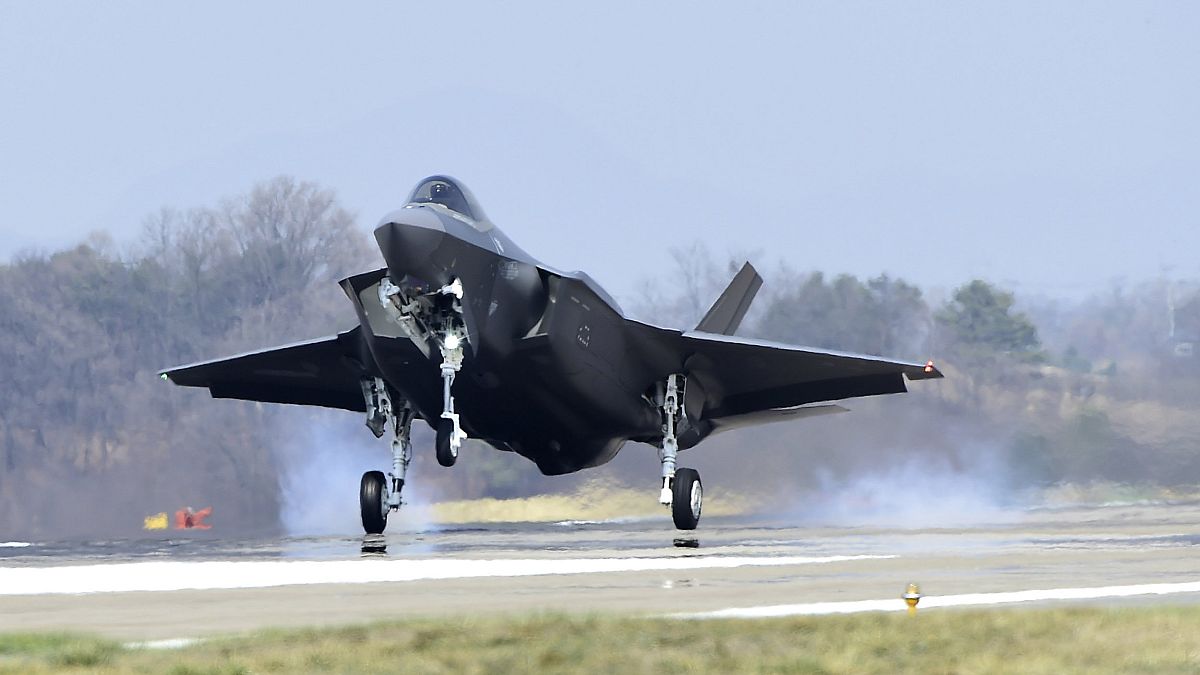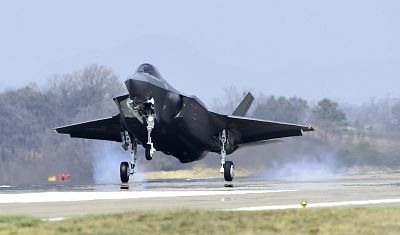Vice President Mike Pence recently warned that the U.S. "will not stand idly by while NATO allies purchase weapons from our adversaries."
WASHINGTON — The U.S. has blocked Turkey from receiving equipment relating to the F-35 fighter jet until its NATO ally cancels an order of a Russian missile defense system.
Washington is deeply unhappy about Turkey's order of Russia's S-400 Triumf, which is among the most advanced and feared air-defense systems in the world.
At the same time, Turkey has ordered 30 of the F-35 stealth fighters and plans to buy more than 100 in total, according to manufacturer Lockheed Martin Corp.
Turkey has already "received" its first two jets, although these are currently being kept at Arizona's Luke Air Force Base, where Turkish pilots are training with them.
"The United States has been clear that Turkey's acquisition of the S-400 is unacceptable," acting Pentagon spokesman Charles E. Summers Jr. said in a statement Monday. "Should Turkey procure the S-400, their continued participation in the F-35 program is at risk."
Turkey agreed to buy the S-400 system from Russia in 2017, a deal reportedly worth $2.5 billion that's set to begin delivery in July.
After months of warnings and ultimatums, the U.S. suspension represents the first major concrete step in trying force Turkey to rethink. This week marks the alliance's 70th anniversary.
Vice President Mike Pence said in February that the U.S. "will not stand idly by while NATO allies purchase weapons from our adversaries."
It is one strand of a increasingly frayed relationship between Washington and its ally that joined NATO in 1952.
World news
The two countries have clashed over Syria, where Turkey opposes U.S.-backed Kurdish fighters who have been instrumental in the fight against ISIS.
Turkey has also been calling for the U.S. to extradite Fethullah Gulen, the exiled cleric currently holed up in a Pennsylvania compound who remains a target of Turkish President Recep Tayyip Erdogan.
The S-400 represents arguably the most pressing of these disputes. Code-named "Growler" by NATO, the system boasts a range of 250 miles and is capable of shooting down aircraft, cruise missiles and drones up to an altitude of 100,000 feet, according to Russian state media.
The U.S. said Monday it was suspending "deliveries and activities associated" with the jet's "operational capability," the spokesman said. In addition, because parts of the F-35 are made in Turkey, the spokesman said the U.S. is now looking at other options for this part of the supply chain.
The ramifications of the S-400 deal could extend further, with "potential future arms transfers" to Turkey from the U.S. also being in jeopardy, a State Department spokesperson said.
World news
Turkey might also face sanctions, thespokesman added, namely under the Countering America's Adversaries Through Sanctions Act, or CAATSA, which the U.S. deployed when China bought the S-400 and other equipment from Russia's blacklisted state arms export agency.
The suspension came one day before President Donald Trump is due to meet NATO Secretary-General Jens Stoltenberg in Washington on Tuesday.
The capital on Thursday will host a summit of the alliance's foreign ministers — including Turkey's — recognizing NATO's 70th anniversary.
The U.S. and NATO say their biggest concern about the S-400 relates to what they call "interoperability" — making sure all the allies' equipment gels together and communicates seamlessly.
If Turkey buys a Russian missile defense system, it would mean part of its defense infrastructure speaking a different language to the rest of the Western alliance.
Furthermore, some experts worry that if Turkey has both the S-400 and the F-35 on its soil, it will be able to test the Russian system's ability to track the jet, ultimately reducing its effectiveness. Such data would be invaluable were it to fall into the Kremlin's hands.
Mosheh Gains and Abigail Williams reported from Washington, and Alexander Smith reported from London.

